“Take the first flight home, no discussion,” we told our 20-year-old son Louis on March 13 when he called that night from Scotland. Classes had just been suspended indefinitely by Edinburgh University where he was doing a one-year exchange program, as part of his five-year political science degree.
How unusual for me to utter that kind of an order to my adult son. Indeed, three days before that, I had been laughing at my sister-in-law’s suggestion we should repatriate Louis asap.
I had forgotten my sister-in-law, a Taiwanese nurse, knows a thing or two about epidemics: in 2003, she was quarantined inside the Kaohsiung hospital amid the SARS crisis.
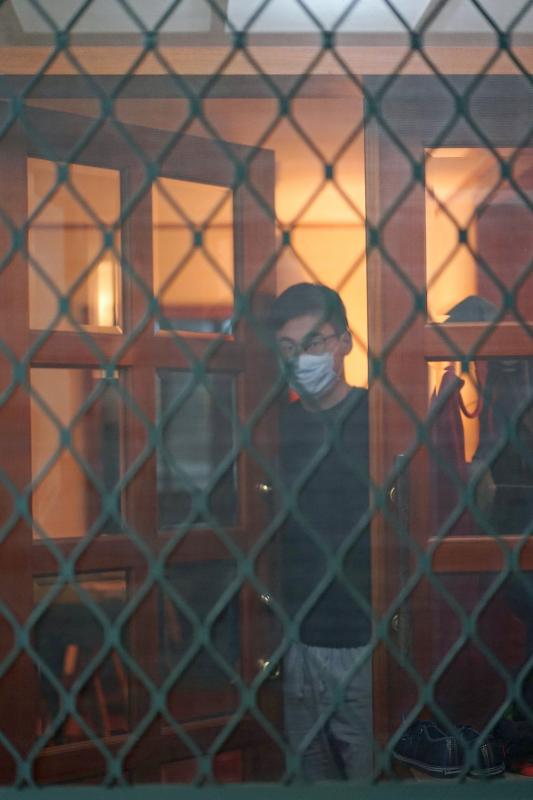
Photo: Laurence Marcout
But on March 13 it had become very clear that it would be months before the UK, or Europe, would get back to some sort of normality.
Telling Louis to fly back to France, my home country, didn’t even occur to me, as the health crisis was obviously only getting started there too. Taiwan on the other hand was doing a very good job at curbing the epidemic, as was evidenced by the very low count of confirmed cases (at that time below 50 and only one death).
Not convinced of the urgency, Louis tried to plead with us to let him take a week or two to tour Scotland, to party with friends and to finish whatever he was doing at the French consular office where he was doing an internship.
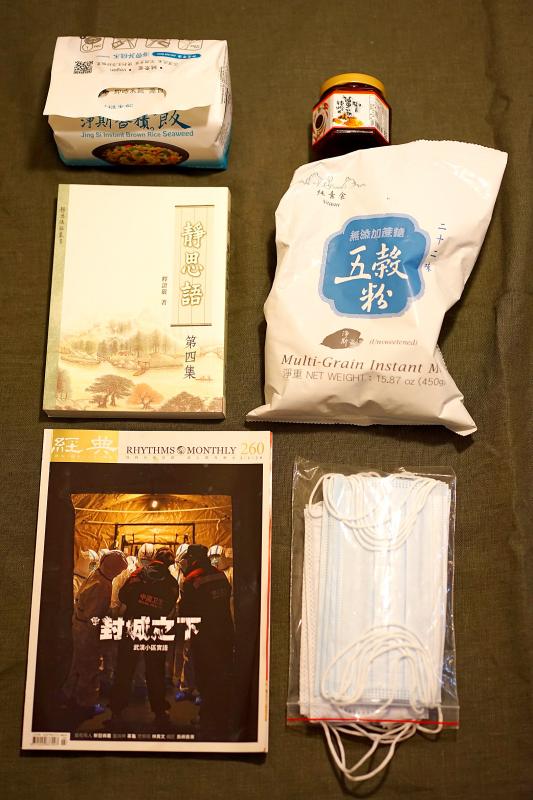
Photo: Laurence Marcout
He bought a KLM plane ticket online that night for the following Monday, only to get a cancellation message a few hours later; the airline was canceling flights by the hundreds. We told Louis to immediately book himself another flight home, whatever the cost. He found an Edinburgh-Istanbul-Taipei flight operated by Turkish Airlines.
HOME ALONE
Upon arrival at Taoyuan Taiwan International Airport, Louis had his body temperature checked and he filled out a lengthy form listing his recent travel history, health situation, address in Taiwan and mobile phone number.
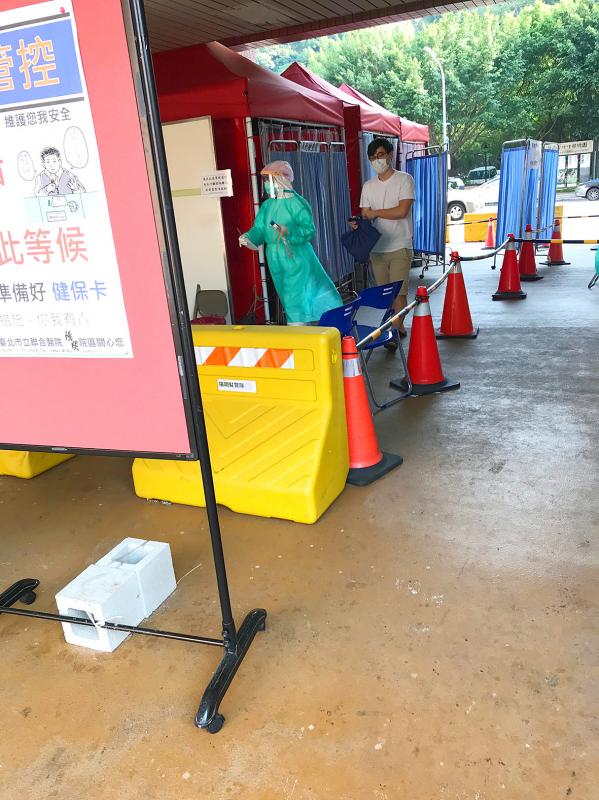
Photo: Laurence Marcout
Travelers arriving from overseas don’t have the right to use the airport MRT. Taxis with drivers trained to protect themselves against contamination by the coronavirus were lining up outside the airport. Louis’ driver was wearing a N95 mask and gloves. She sprayed him from head to toe with rubbing alcohol before giving the same treatment to his luggage.
We had been planning to lock up Louis inside his room at home for 14 days, and had stocked up on fresh vegetables and fruit, dairy products and dry goods so as to reduce our own need to leave the house, although we were not getting quarantined. But then my husband, who is Taiwanese, my younger son and me all got more or less the same message from our respective workplaces and school: “If you are going to live under the same roof as a potential coronavirus case, do not think for a minute about coming back before the end of his quarantine.”
My husband visited hotels around our neighborhood, checking if they would accommodate Louis. The answer was invariably no.
Some hotel accommodations have been organized by the Taiwanese health authorities for quarantined people with no other option, but they are located quite far away from our home.
In the end, we decided to let Louis do his quarantine from home, while the three of us would take refuge at the cheap hotel next door. So after welcoming Louis back home from a safe two-meter distance, we let him slip into the house and left with our own luggage, as if going on a surprise holiday. That arrangement worked for everybody, leaving us free to carry on with our lives.
We regularly checked on the lonely young man from afar, waving to him from the alley and calling or texting him. From time to time, his brother would play delivery boy and leave a glass of pearl milk tea or a bowl of noodles on the doorstep to appease the new god of the abode.
Still, after a week or so, after the jetlag had disappeared, his days started feeling like a long flight, days merging into night.
“I miss the sun, the wind, fresh air, moving around,” he told me.
ABIDING BY THE RULES
Authorities had made it clear that if Louis didn’t abide by the rules, the police would find out and he might be fined up to one million New Taiwan dollars.
A woman surnamed Yang (楊) working at the borough warden’s office was calling him twice daily, showing genuine concern, while making sure he was indeed at home where he should be.
One day, she brought him a gift bag prepared by the Buddhist Compassion Relief Tzu Chi Foundation, a local charity: instant rice meal, breakfast cereal mix, chili pepper paste, a dozen surgical face masks and a bunch of Buddhist literature in Chinese.
At one point, because Louis had been coughing for days, Yang called me and offered to send an ambulance and have him tested at a nearby hospital.
“Would they be blaring their siren?” I asked.
Yes, they would.
“In that case, thanks, but no thanks,” I said.
I decided to wear a mask, lower all the windows and drive Louis myself to the closest coronavirus testing station, as I didn’t want to scare the neighbors.
The neighbors, in fact, were sympathetic with Louis’ situation. Thousands of Taiwanese households count one or two children studying abroad, and many have returned over the past month, so our experience is quite common.
Louis got the green light to leave the house and off we drove to the closest hospital, without fanfare.
“I’m so happy to be out,” he said to me, his head out of the window, taking in the Tianmu scenery. “Can you just drive around the block a few more times? Why don’t we just take another, longer road back home? Can we go take a walk in the park now that I have been allowed to go out?”
Well, I wasn’t prepared to take the risk. One million Taiwan dollars is a lot of money.
Meanwhile, the borough warden had called the hospital to let the coronavirus team know about our arrival — a special favor, I suspect, that has something to do with the fact that I am a foreigner. Outside the emergency entrance, we waited next to three red tents propped up for coronavirus testing, complete with an X-ray chamber.
After a chest radiograph and blood sampling, some mucus was harvested from his sinuses by a doctor, fully-equipped in protective gear, astronaut-style.
In the end, all three tests came back negative: Louis had only been suffering from hay fever and a sinus infection. This clean bill of health, however, didn’t put a stop to his quarantine. No complaint here: we are very grateful for the hard work done in this country to prevent clusters from forming.
‘BONUS TIME’
A month after his arrival, Louis is very much aware of how lucky he is. He has absorbed the obvious responsibility every one bears in this towards family, friends and society. Although now free to roam the streets at will, he chooses his activities with this experience in mind. No clubbing, eating out at the night market or spending hours in packed cinemas.
“Now it kind of feels like bonus time — time in Taiwan that I thought I would never have anymore, because studies, internships, travels, summer jobs and in the end a real job would keep me away from here,” he said.
Louis is supposed to report to university in Paris on Aug. 23. Who can say today if that date is at all realistic?
“If I cannot go back to Paris in August, then I’ll brush up on my Chinese,” he says with a smile.
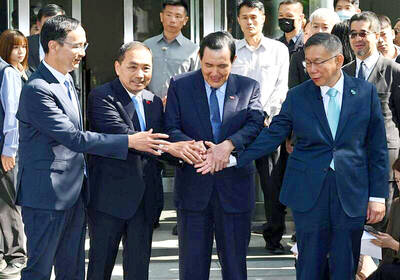
Has the Taiwan People’s Party (TPP) changed under the leadership of Huang Kuo-chang (黃國昌)? In tone and messaging, it obviously has, but this is largely driven by events over the past year. How much is surface noise, and how much is substance? How differently party founder Ko Wen-je (柯文哲) would have handled these events is impossible to determine because the biggest event was Ko’s own arrest on multiple corruption charges and being jailed incommunicado. To understand the similarities and differences that may be evolving in the Huang era, we must first understand Ko’s TPP. ELECTORAL STRATEGY The party’s strategy under Ko was
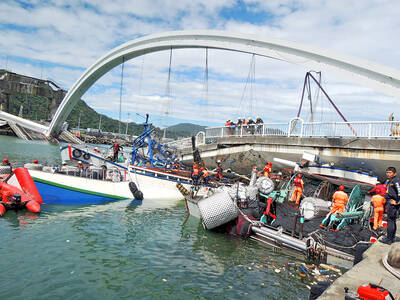
Before the recall election drowned out other news, CNN last month became the latest in a long line of media organs to report on abuses of migrant workers in Taiwan’s fishing fleet. After a brief flare of interest, the news media moved on. The migrant worker issues, however, did not. CNN’s stinging title, “Taiwan is held up as a bastion of liberal values. But migrant workers report abuse, injury and death in its fishing industry,” was widely quoted, including by the Fisheries Agency in its response. It obviously hurt. The Fisheries Agency was not slow to convey a classic government
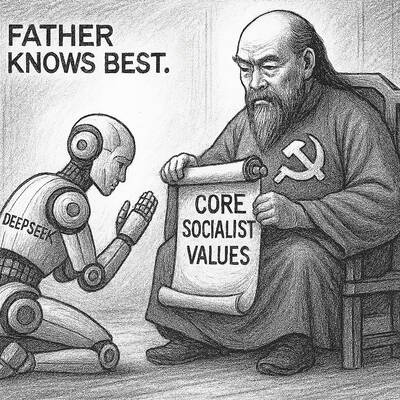
It’s Aug. 8, Father’s Day in Taiwan. I asked a Chinese chatbot a simple question: “How is Father’s Day celebrated in Taiwan and China?” The answer was as ideological as it was unexpected. The AI said Taiwan is “a region” (地區) and “a province of China” (中國的省份). It then adopted the collective pronoun “we” to praise the holiday in the voice of the “Chinese government,” saying Father’s Day aligns with “core socialist values” of the “Chinese nation.” The chatbot was DeepSeek, the fastest growing app ever to reach 100 million users (in seven days!) and one of the world’s most advanced and
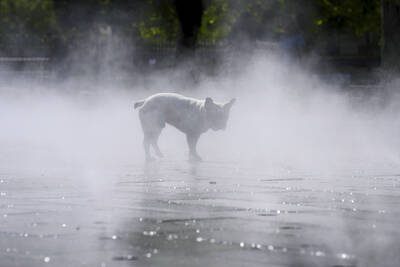
It turns out many Americans aren’t great at identifying which personal decisions contribute most to climate change. A study recently published by the National Academy of Sciences found that when asked to rank actions, such as swapping a car that uses gasoline for an electric one, carpooling or reducing food waste, participants weren’t very accurate when assessing how much those actions contributed to climate change, which is caused mostly by the release of greenhouse gases that happen when fuels like gasoline, oil and coal are burned. “People over-assign impact to actually pretty low-impact actions such as recycling, and underestimate the actual carbon